Julian Leeser says ‘Yes’ but not to Prime Minister Anthony Albanese’s Indigenous voice to parliament model

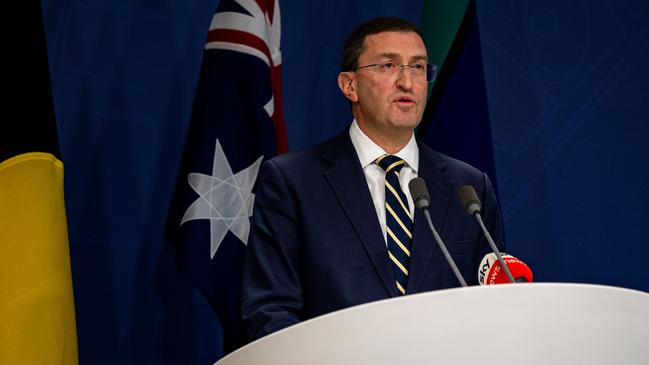
That is most unlikely to happen. Indeed, Leeser’s exit from the Coalition frontbench and the embarrassment for Peter Dutton is likely only to fuel Labor’s momentum about the referendum and its belief that the Opposition Leader has made a disastrous call amid growing Liberal divisions.
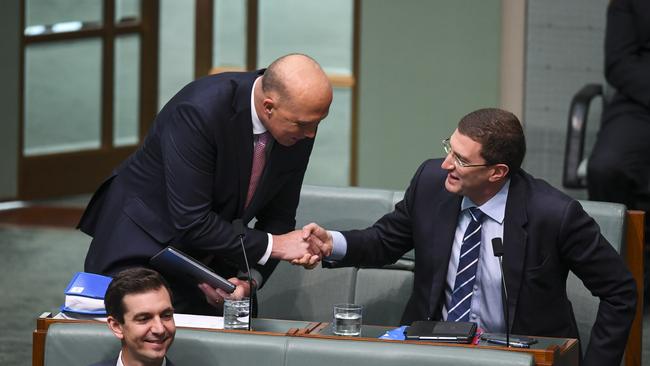
The idea that Dutton has got it wrong is a Labor-progressive axiom and is backed by personal denunciations of Dutton as an out-of-touch reactionary unable to shift his party to the vision of Indigenous empowerment and justice the nation needs.
Leeser’s resignation on principle is a tragedy at many levels. It is probably an omen of more tragedies ahead before this political moment for the country is played out. Leeser has conducted himself with restraint and dedication yet has been the subject of disreputable, unjustified, personal attack. His eloquence and commitment could make him an influential figure persuading Liberal voters to the Yes cause.
Contrary to much of the debate, Dutton’s decision to oppose the voice and campaign against it was entirely predictable. The Coalition has never had any political ownership of this proposal – it has been opposed by John Howard, Tony Abbott, Malcolm Turnbull as prime minister, Scott Morrison and now Dutton. The Coalition’s objections have been based on principle and practicality and have run for years.
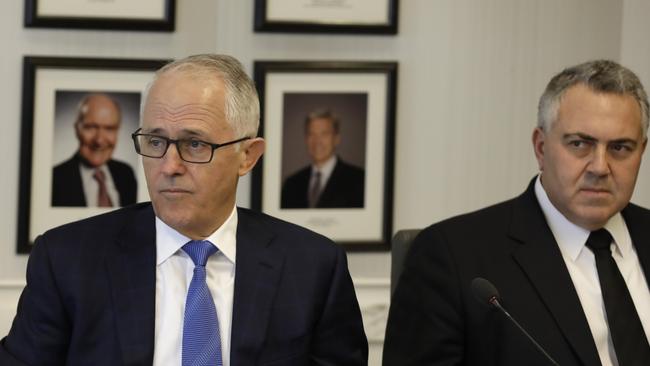
As Leeser said, the “overwhelming” sentiment of the frontbench and partyroom was to reject the Albanese proposal. The way Albanese has managed this issue since becoming Prime Minister has only entrenched that opposition. Polls show a clear majority of Coalition voters reject the voice. The fact Leeser cannot support the “overwhelming” position of his colleagues does not lead to the conclusion that Dutton made the wrong call. That doesn’t make sense.
The dangerous stance for Dutton would have been to support the voice – a position he doesn’t believe, that his colleagues don’t endorse and that his voters don’t like. Do people attacking Dutton seriously believe endorsing the voice would have been smart politics for him? The idea that he would have won over progressives voters is nonsense. The certainty, however, is that Dutton, if he had backed the voice, would have created a sense of betrayal and revolt from his own side.
Some people argue Dutton should have allowed a conscience vote across the whole party. Howard dismissed this option in an interview with the author last year. Howard said among the Liberal base he “hadn’t found anybody who accepts the proposition that you ought just to give it a go”.
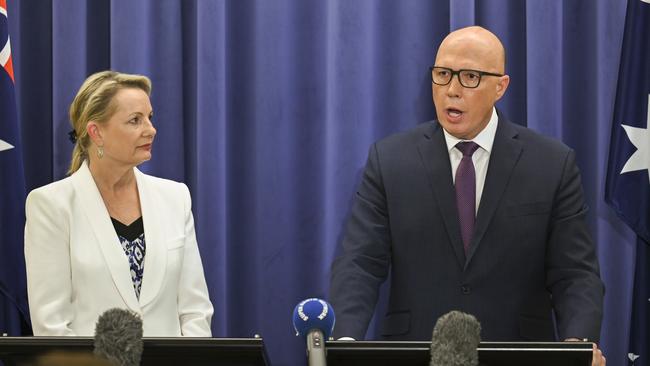
The voice is not an issue of personal morality or conscience. When Joe Hockey during the 2009 leadership crisis proposed a conscience vote on the emissions trading scheme he weakened his own position. The voice is an issue of deep policy, governance and constitutional import. It demands a party stance and a majority of the partyroom wanted a party decision – that’s the difference with the republic.
Albanese, as he said, is on a personal mission “to change the country”. Every sign is that he seeks to carry the referendum on goodwill, the vibe and high-profile endorsements. The government refuses to discuss the institution it seeks to create, how its power will be used and how this will improve our system of parliament and government.
Inserted into the Constitution, the voice will be a group rights political body pursuing political outcomes with a constitutional mandate that is virtually open-ended in terms of the representations to parliament and the executive government – cabinet, ministers, department heads, public servants and statutory authorities – on matters concerning Indigenous people or on general matters that include Indigenous people. Albanese had previously said only a “brave” government would overlook advice from the voice.
Some Yes advocates say “nothing to see here” and this is just a modest proposal. Does it sound modest to you? Indigenous lawyer and voice champion Megan Davis, in an article co-authored with Gabrielle Appleby, said parliament can set the “procedure” through which representations are received but parliament “won’t be able to stop the voice making those representations” and “it can’t shut the voice up”.
The agencies the voice could advise include the Reserve Bank, the Great Barrier Reef Marine Park Authority and the Ombudsman. Environment, climate policies and laws would be a priority. The voice will speak not just on matters that “directly” affect Indigenous people but on matters that have “an indirect but significant” impact on them. The entire point is to have a wide scope.
The words of the constitutional amendment allow advice on issues ranging from tax to resources to defence to foreign affairs to Covid-19 – to both parliament and any aspect of our executive, ministers or public servants, with the immense pressure representations from the voice will carry. When Albanese said a few weeks ago it was a “distraction” to talk about the voice advising on the safeguard mechanism, he was wrong. That is exactly the sort of issue the voice would be empowered to advise on and it is unreal to think its participants will not function as politicians engaging in media debates.
Does all this and its ramifications sound modest to you?
The voice will occupy a new chapter in the Australian Constitution. No mere footnote, nothing modest about a new chapter. Just as the founding fathers 125 years ago gave the parliament, the executive and the judiciary their own chapters, so the voice will have its chapter. This is a fundamental change to our Constitution and our country.
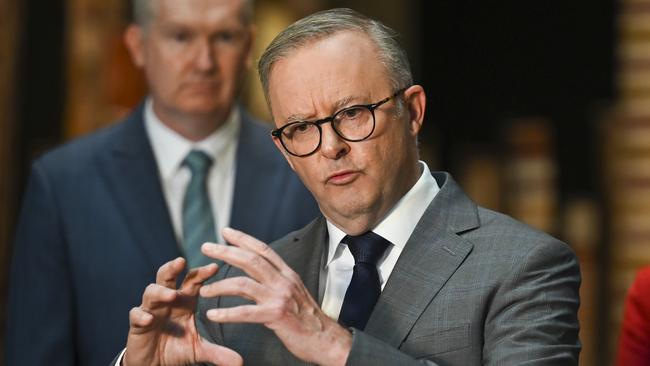
The Labor line that the parliament will remain in control is false; parliament cannot override or limit the words of the constitutional amendment. Once the referendum is passed, the foundations of the voice are set in stone beyond parliament.
This referendum is about changing power in Australia through a sweeping alteration to our system of parliamentary and executive government. This is Dutton’s claim and there is a truckload of evidence to substantiate that proposition. What is disreputable is Labor’s tactic, supported by much of the media, of downplaying, ignoring or engaging in deception about what this referendum means by refusing to confront the ramification arising from the power vested in the voice. Yet that is the ultimate issue – it is about the words in the Constitution and the power they are creating. Many people believe in reconciliation, constitutional recognition and a consultation mechanism, even a voice, but cannot accept these vast powers.
Leeser’s media conference on Tuesday was double edged. He showered Dutton with praise and criticised Albanese. He will spend six weeks campaigning for his own vastly different model. He said when Albanese was probed about his model he took offence. He said Albanese’s tactics were divisive and threatened the referendum’s success and that his “all or nothing” approach might end with nothing. Leeser and Dutton have finished on different sides but they agree on one thing – the Albanese model is flawed. For Albanese, thinking the Australian public won’t ask questions and will just vote Yes is a huge gamble.

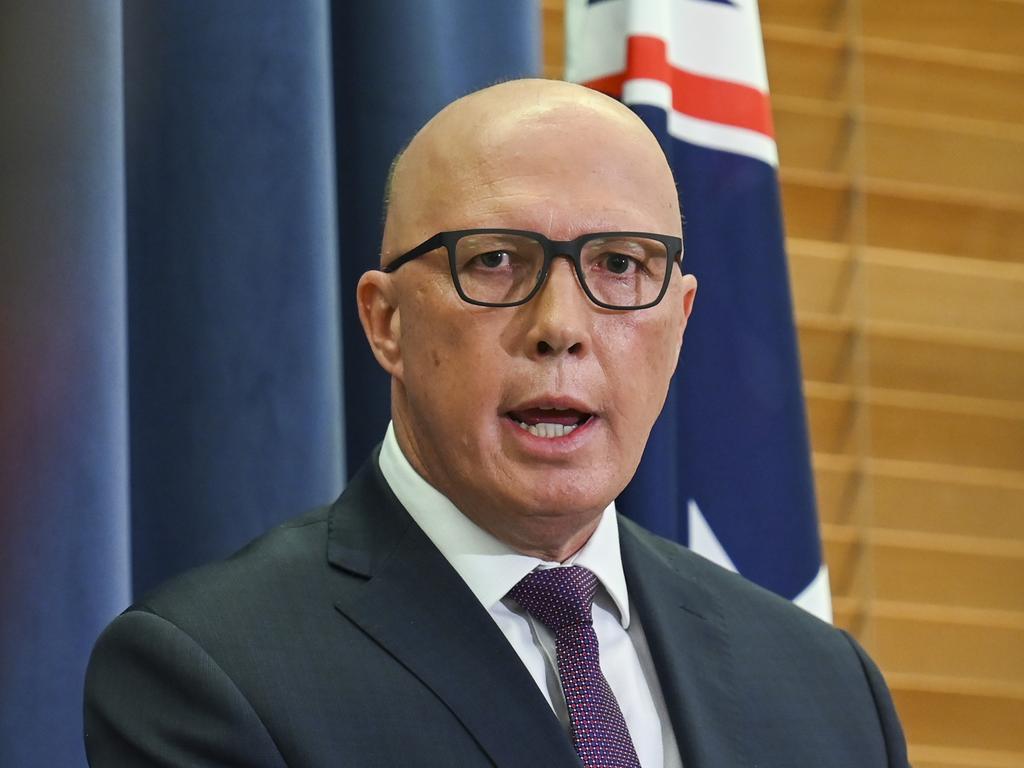
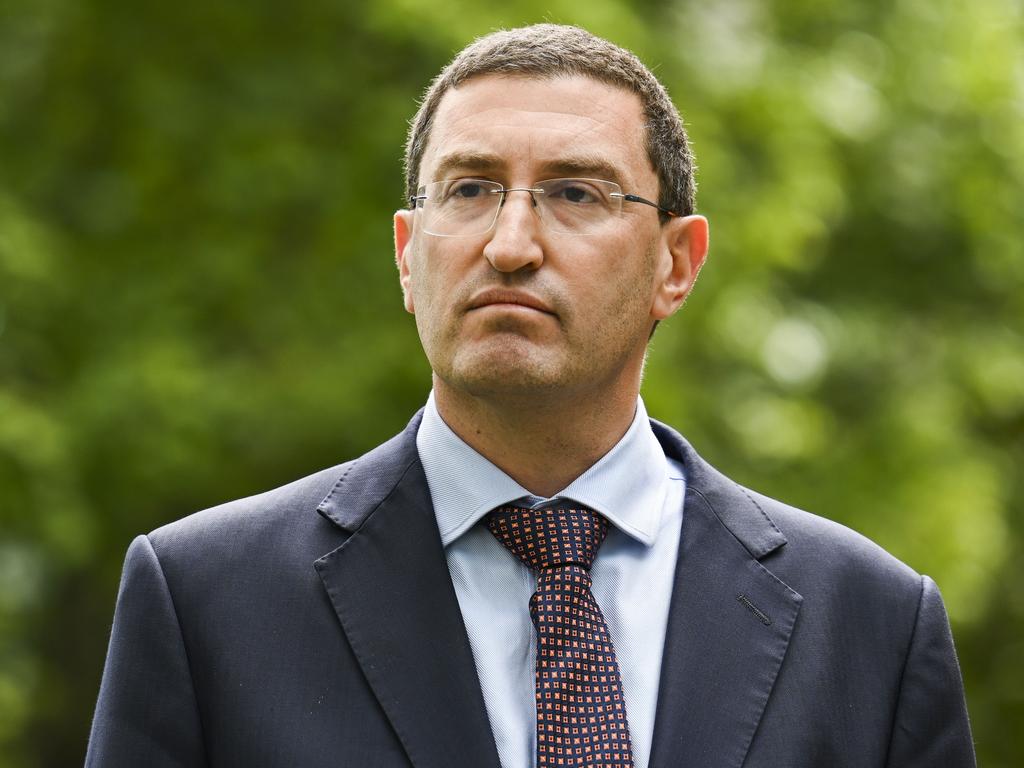
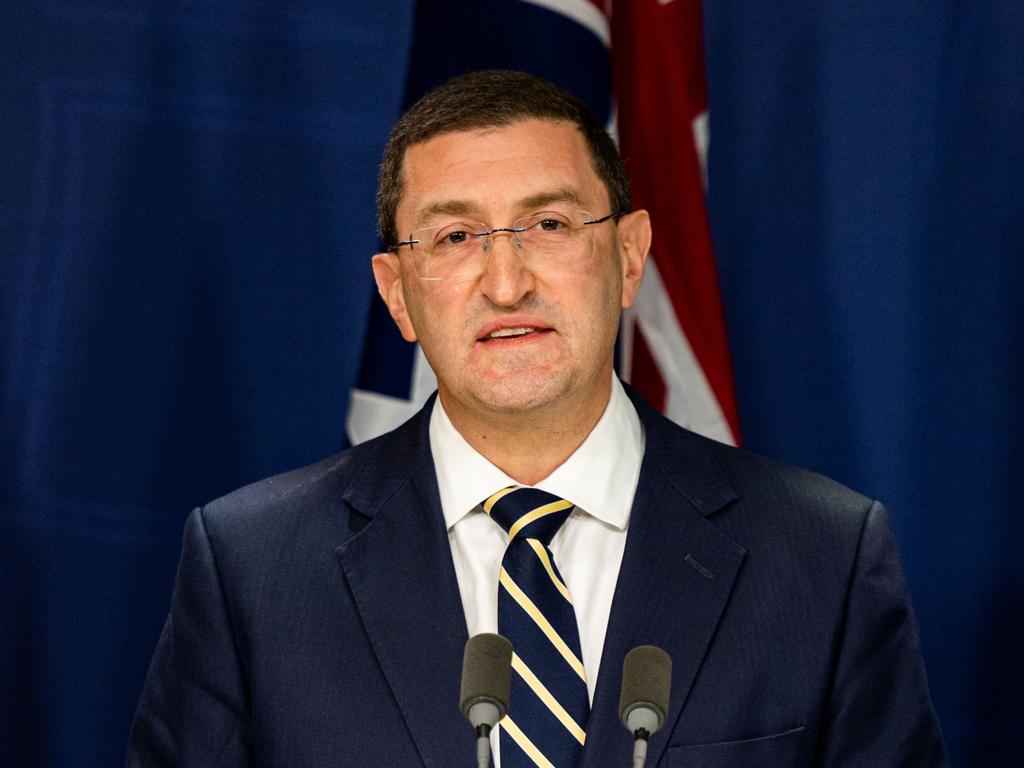
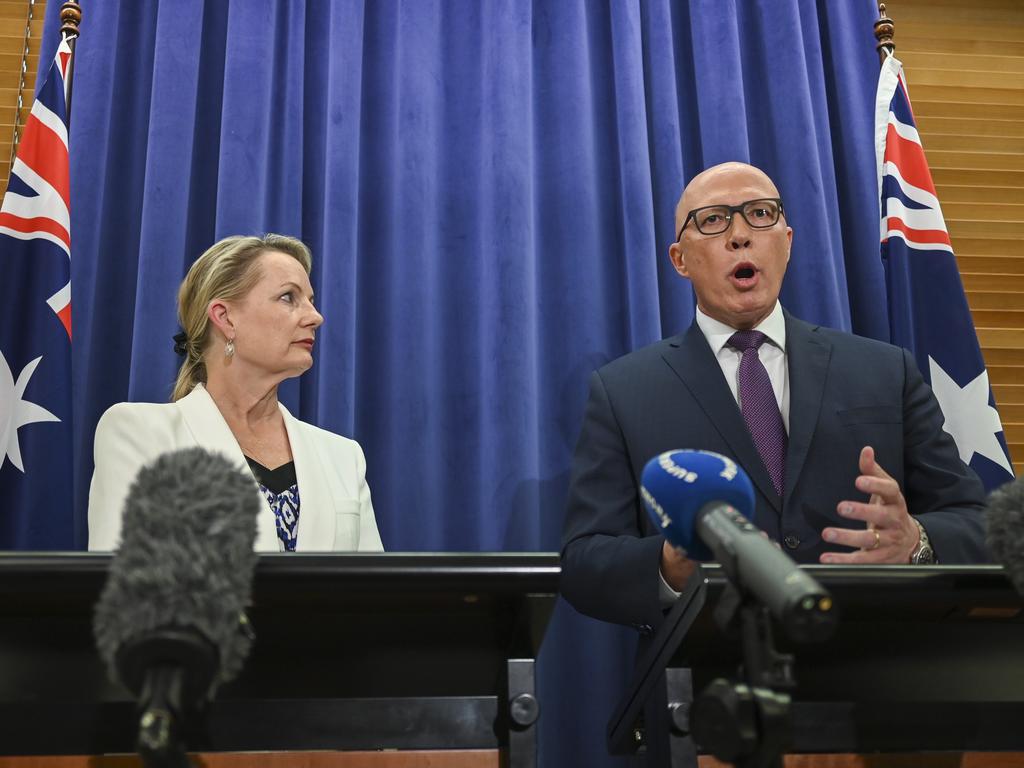


The resignation from the shadow cabinet of Julian Leeser along with his commitment to the Yes case is a distinct boost for the voice to parliament referendum’s prospects – but Leeser has also issued a strong warning that the model of the voice is flawed and has appealed to Anthony Albanese to revise it.